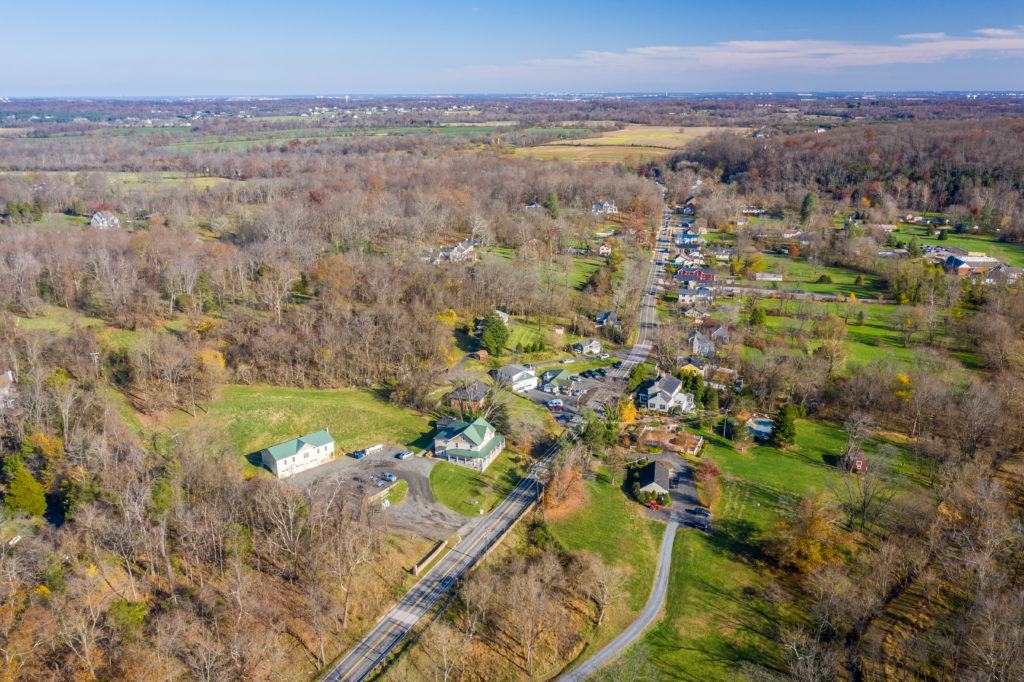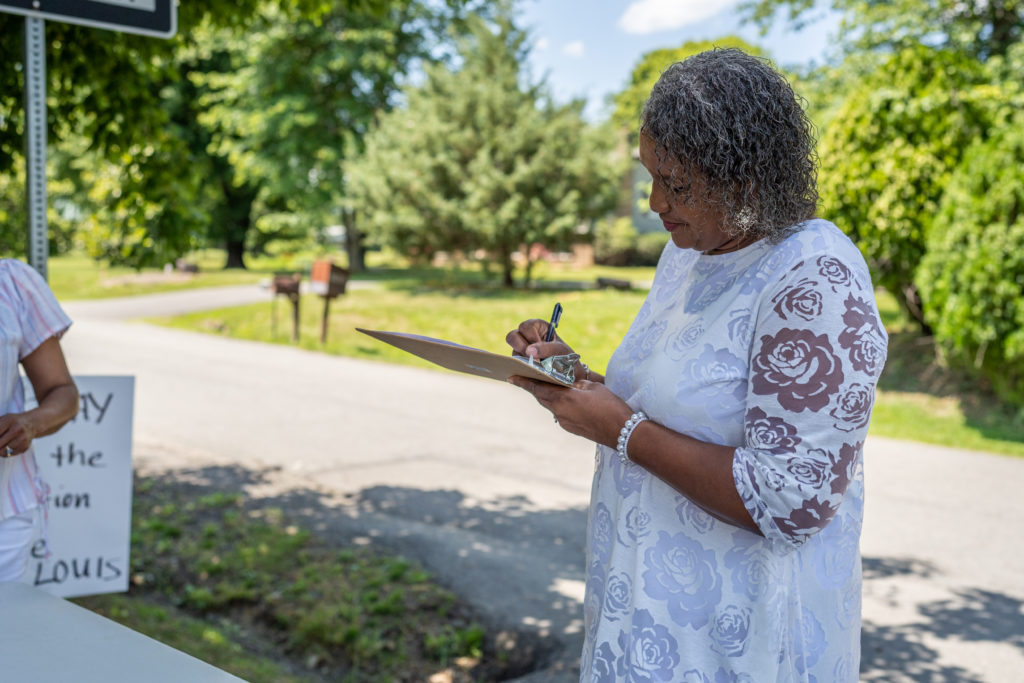Loudoun County can no longer leave historic villages out of community planning
Over the last year, the futures of two of Loudoun’s historic villages, Aldie and St. Louis, have been linked in uncertainty. In an attempt to protect St. Louis’ fragile water sources and remaining historic features from an impending development, the Loudoun Board of Supervisors proposed a multi-faceted real estate transaction that would, essentially, move the developer from St. Louis to county-owned land in Aldie that the developer wanted to build upon. The result was upheaval in both places as residents objected to the Aldie development and the linkage that threatened each community’s unique qualities.
A Happy Outcome for Aldie
During the summer, another Aldie resident and developer, Guy Gerachis, stepped forward with a cash offer for the county-owned land in Aldie. His proposal for the property was vetted and supported by the community. After an open call to consider all possible offers, the board ultimately voted to accept Gerachis Construction Group’s proposal. Details are to be worked out with a closing in the near future, but the purchase effectively decoupled the future of the two villages.

Uncertainty Continues in St. Louis
Meanwhile in St. Louis, the developer resumed well drilling for his planned development. Residents started a petition, signed by many members of the St. Louis and greater western Loudoun community, asking the board to protect their water and their future. The board held a special public input session in June, where residents and supporters spoke with passion about the need to keep working toward a solution for St. Louis.
The outcome for St. Louis is still unknown, but the board has prioritized a planning and zoning initiative for St. Louis as one of the top three projects for county staff to address in their workplan. In September, staff will propose a set of options for Board consideration and vote. Unfortunately, this action will neither address nor stop the original development that started it all, and no further public announcements have been made about how the county might address that issue. Nonetheless, there is hope in the community that a resolution is still possible, and residents continue to advocate for a solution.

Residents of St. Louis sign a petition asking Loudoun’s board of supervisors to protect their water and the future of the village. Photo by Hugh Kenny/PEC
The Unique Challenges and Opportunities for Historic Villages
The plights of St. Louis and Aldie illustrate a common struggle for historic villages throughout Loudoun County—Lucketts, Philomont, Unison and others. Varied in size and density each has evolved organically, with long, deep roots that create a unique sense of place their residents recognize and value but that isn’t readily apparent to outsiders. In many cases, zoning allows future development that could fundamentally alter their unique character with generic buildings and development patterns. Future development threatens the viability of some by putting undue pressure on limited groundwater and other natural resources. And they lack the benefit of HOA covenants and other restrictions that could protect residents’ long-term desires for these communities.
And yet, while Virginia requires every county to have a comprehensive plan and to review and revise that plan every five years, Loudoun has never included its historic villages, specifically, in community planning exercises during these processes.
With a mission that in part seeks to preserve and protect the region’s historic and cultural resources, PEC believes all of Loudoun’s historic villages must be specifically included in county plans. Without village-specific land use plans that holistically address growth potential, groundwater sustainability, infrastructure and residents’ vision for the future, the villages are left with uncertain futures and will have to deal with issues that arise in an uncoordinated fashion.
In Lucketts, for example, current zoning allows excessive growth, and proposed road projects may have negative impacts on local businesses and residents. Unison, Lincoln, and Waterford, like St. Louis, face groundwater resource challenges. Residents of Philmont are concerned with protecting the horse show grounds—the site of 60+ years of annual horse shows and a cherished community asset—while ensuring adequate space for fire and rescue station needs.
Advocating for Villages
Routinely in our work, PEC supports the Loudoun Historic Village Alliance (LHVA), which speaks as a single voice for Loudoun’s many historic communities, to identify and highlight common issues faced by historic villages. Our hope is to equip and empower village residents to play an engaged role in their destiny within Loudoun County’s overall growth and development. Community planning is where that starts. We encourage residents to speak up for these villages in letters to the Loudoun Board of Supervisors and contact LHVA at loudounvillages.org to get involved.
View our prior post on St. Louis/Aldie: https://www.pecva.org/region/loudoun/update-on-st-louis-aldie/
This story appeared in The Piedmont Environmental Council’s member newsletter, The Piedmont View. If you’d like to become a PEC member or renew your membership, please visit pecva.org/join.
